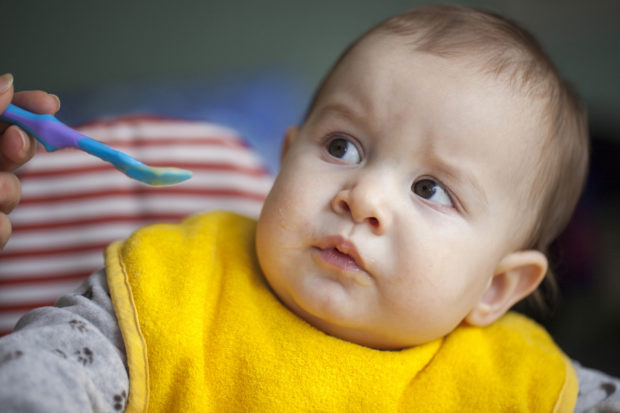WHO warns of too sugary baby foods

The WHO noted that while foods that naturally contain sugars, such as fruits and vegetables, can be appropriate in young child diets, “the very high levels of sugars present in commercial products is a cause for concern.” Image: iStock/pelojum via AFP
Commercial baby foods often contain too much sugar and display confusing ingredient lists, according to a United Nations report that proposed new guidelines Monday, July 15, to improve infant diets.
The World Health Organization examined nearly 8,000 products from more than 500 stores in Austria, Bulgaria, Israel and Hungary between November 2017 and January 2018.
“In around half of products examined… more than 30% of calories were from total sugars and around a third of products contained added sugar or other sweetening agents,” the European branch of the WHO stated.
The WHO noted that while foods that naturally contain sugars, such as fruits and vegetables, can be appropriate in young child diets, “the very high levels of sugars present in commercial products is a cause for concern.”
High sugar intake can increase the risk of overweight and dental cavities, the organization warned.
And early exposure to overly sweet products can create a potentially harmful lifelong preference for sugary foods.
“Good nutrition in infancy and early childhood remains key to ensuring optimal child growth and development, and to better health outcomes later in life,” WHO Regional Director for Europe Zsuzsanna Jakab said in a statement.
Up to 60% of inspected food products were labeled as suitable for infants under six months old, contrary to WHO recommendations “that infants receive exclusively breast milk for the first six months of life”, said the report.
The WHO said it was updating its guidelines to help member countries adopt new legislation to curb high sugar intake.
The WHO wants the promotion of breast milk substitutes to end, and recommends that children between six months and two years be fed nutrient-rich foods prepared at home.
The organization called for the banning of added sugars and sweeteners in baby foods and said labels on candies and sweetened beverages, including fruit juices and condensed milk, should state the products are not suitable for children under three. HM/NVG
RELATED STORIES:
Problematic smartphone use linked to poor academic grades, alcohol misuse, mental health problems